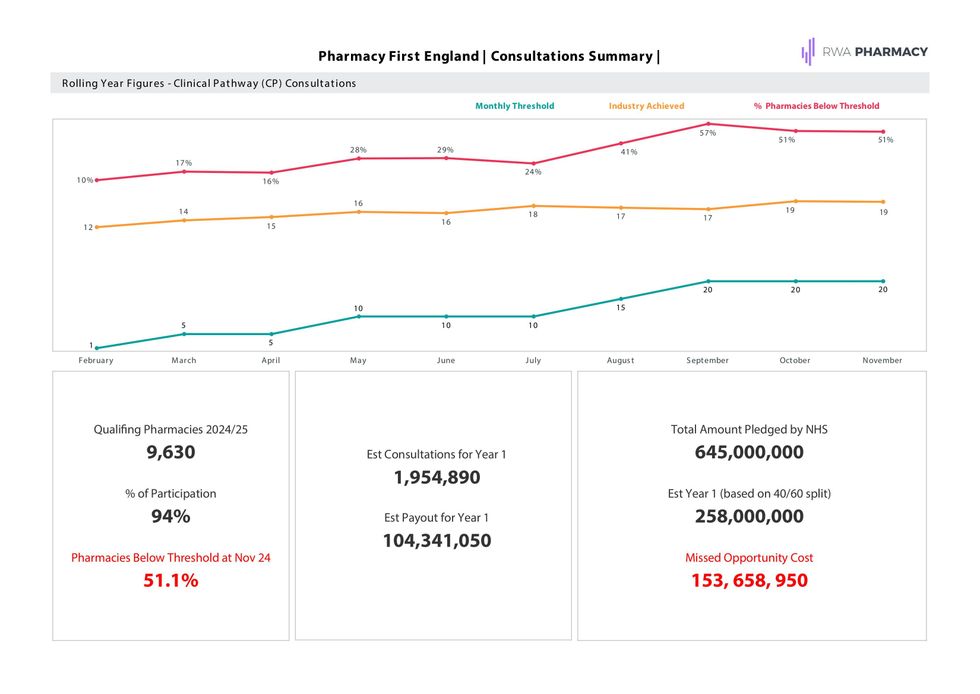One of the most promising applications of AI lies in personalised medicines. Dr. Yasmin Karsan expounds…
Artificial Intelligence (AI) is an incredible tool that is gaining momentum across industries such as Finance, Aerospace and now Healthcare. In my previous articles, I have discussed what artificial intelligence is, its use in community pharmacy, and the ethics around its utility. It has great potential across the healthcare space.
This article will focus on the futuristic potential of using AI across the pharmacy sector.
Health systems across the globe are finding difficulty in delivering sustainable care and our National Health Service (NHS) is no different. The use of modern technology has taken centre stage to support sustainable service provision. Many Integrated Care Boards (ICBs) across England are utilising AI tools to support diagnosis and long-term condition management.
One of the most promising applications of AI lies in personalised medicines. The pharmacy value chain begins with drug discovery and leads on to manufacturing, distribution, dispensing, and patient care. By leveraging advanced AI systems, each part of the value chain can be optimised for patient care, by providing personalised medicine regimens that cater to the unique needs of each patient, potentially improving outcomes and reducing risks.
AI systems are transforming the way pharmacists analyse patient data, predict treatment outcomes, and tailor medication plans to individual needs.
Let’s explore different areas where AI algorithms and machine learning techniques could be best placed to support the pharmaceutical value chain.
Optimising medicine regimens
Every patient is different. Factors such as genetics, lifestyle, medical history, and concurrent medications can significantly impact how individuals respond to treatments. Traditional medicine regimens often adopt a one-size-fits-all approach, which may not always give the best results. AI can assimilate a tremendous amount of data and therefore change this paradigm by supporting personalised treatment plans tailored to each individual.
Analyse complex patient data
AI algorithms sift through vast amounts of data, including medical history, genetic information, and biometric readings, to identify patterns and correlations that human analysis might overlook.
Within pharmacy PMR systems there are already multitudes of data. AI-powered systems in pharmacies can analyse vast amounts of patient data to optimise medicines and supply chain management.
By analysing how a patient’s body metabolises specific medications, AI can recommend precise dosages that maximise therapeutic effects while minimising side effects.
Adjust dosages for precision - The smart pill
A step forward in drug discovery, the utility of AI is paving the way for truly personalised medicines. Research is currently underway to support patients with having all their required medicines in one pill. By leveraging AI algorithms, researchers can analyse patient-specific data, such as genetics, lifestyle, and disease patterns, to optimise drug formulation and timing. These “smart pills” will not only improve adherence but also enhance therapeutic outcomes by delivering the right medication at the right time.
This comprehensive analysis enables pharmacists to make more informed decisions about medication management, leading to improved patient outcomes and reduced risks of adverse events.
Predict treatment outcomes
Advanced predictive models help forecast a patient’s response to a particular medication, ensuring the treatment plan aligns with their specific needs. AI algorithms can support pharmacists to anticipate potential side effects, there by estimating the likelihood of treatment success and therefore adjust medication plans proactively.
By leveraging these insights, pharmacists can work with healthcare providers to develop more effective and personalised treatment strategies.
Enhancing patient safety
AI systems in pharmacies can play a crucial role in enhancing patient safety by:
Polypharmacy, or the use of multiple medications by a single patient, is common, particularly among individuals with chronic conditions. However, this increases the risk of adverse drug interactions, which can lead to serious complications.
AI-driven systems in pharmacies can address this by:
- Cross-referencing medications: These systems quickly scan a patient’s current medication list and identify combinations that might cause harmful interactions.
- Flagging potential risks: Pharmacists are alerted to issues such as overlapping side effects, contraindications, or interactions with over-the-counter drugs.
- Recommending safer alternatives: AI tools provide pharmacists with evidence-based suggestions for alternative medications or adjustments to existing regimens to avoid potential conflicts
These safety checks help prevent medication errors and adverse drug events, ultimately improving patient outcomes and reducing healthcare costs.
Challenges and ethical considerations
While the potential of AI in personalised medicine is great, challenges remain. Ensuring data privacy and security is paramount, as these systems handle sensitive personal and medical information. Additionally, the accuracy of AI predictions depends on the quality of the data used to train models, highlighting the need for robust and unbiased datasets.
Pharmacists and healthcare providers must also navigate ethical concerns, such as ensuring AI recommendations do not inadvertently exacerbate health disparities or undermine patient autonomy. Close collaboration between AI developers, healthcare professionals, and regulatory bodies is essential to address these issues.
The future of AI in pharmacy
AI could redefine the role of pharmacies in personalised medicine, turning them into hubs of tailored healthcare solutions. By optimising medicine regimens, identifying potential drug interactions, and predicting individual responses to treatments, AI is empowering pharmacists to deliver safer, more effective, and patient-centric care. As these technologies continue to advance, they promise to make personalised medicine a standard, rather than an exception, in healthcare.
By Dr Yasmin Karsan, MRPharmS, PhD, MSc, IP
Pharmacist, Clinical Safety Officer and AI Engineer










 Harry McQuillan
Harry McQuillan





 Wes Streeting outlines ambitious NHS reform plansPic credit: Getty images
Wes Streeting outlines ambitious NHS reform plansPic credit: Getty images Pharmacies played a critical role during the pandemicPic credit: Hollie Adams/Getty Images
Pharmacies played a critical role during the pandemicPic credit: Hollie Adams/Getty Images




 Shivam Modi
Shivam Modi